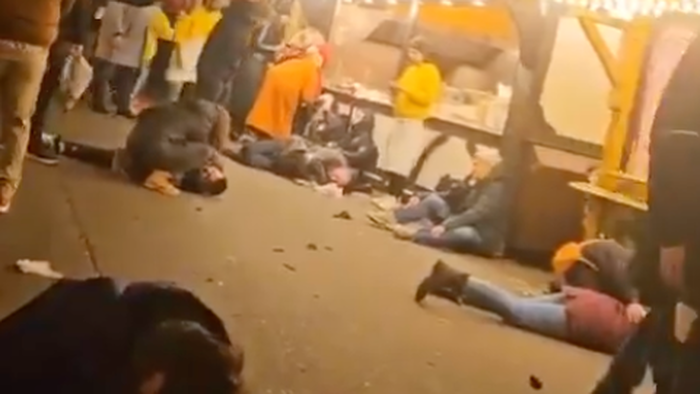On December 20, 2024, a tragic incident occurred at the Christmas market in Magdeburg, Germany, resulting in at least two fatalities and over 60 injuries. The chaos began when a vehicle, driven by a 50-year-old Saudi doctor who had been in Germany since 2006, barreled into the crowded market around 7 p.m., coinciding with peak holiday shopping activity. Eyewitness accounts described scenes of panic as people fled in terror. Officials reported that among the casualties were an adult and a toddler. Both local government representatives and health authorities indicated that several of the injured were in critical condition, prompting healthcare facilities to prepare for a potential surge of patients.
Initial responses from government officials established that the driver was in police custody and that as of that moment, he was believed to be a lone perpetrator with no further threats to public safety. Saxony-Anhalt’s interior minister and the governor shared their concerns over the implications of such an attack, labeling it as a terrorist act. The situation was marked by a heavy police presence, and many rescue workers were deployed to the scene to manage the aftermath, while citizens were urged to stay away from the area.
The incident drew immediate attention not only from national authorities but also from international figures, including Elon Musk, who publicly criticized German Chancellor Olaf Scholz and called for his resignation due to perceived incompetence in handling national security issues. The suggestion of an attack on a popular Christmas market echoed previous attacks in Germany, notably the Berlin truck attack in 2016, which had similarly targeted holiday festivities, raising fears about the safety of such gatherings during the season.
As investigations unfolded, various media outlets stirred speculation about the motivations behind the incident, with some highlighting prior threats posed to Christmas markets by extremist groups. Eyewitnesses noted that similar incidents had occurred before, fueling concerns about the vulnerability of crowded public spaces during traditional holiday celebrations. Amidst the ongoing emergency, commentators on social media began connecting the attack to broader narratives on immigration and public safety, further intensifying debate over national policy and security measures.
German authorities had previously assured the public there were no substantial threats against Christmas markets ahead of the holiday season, aiming to promote a sense of safety and normalcy. However, the sudden onslaught of violence changed the landscape, leading to a reevaluation of risk management strategies during important public events and raising questions about the effectiveness of current security protocols.
In the wake of this incident, responses from various sectors, including governmental, societal, and media discussions, focused on both the immediate ramifications of the attack and the long-term implications for national security discourse. Efforts to provide support for victims and their families were prioritized, alongside intensive investigations to determine the motive and any potential connections to larger networks of extremism. As the city of Magdeburg and the broader German populace grappled with the reality of this tragedy, the incident served as a harrowing reminder of the ongoing challenges related to terrorism and public safety in democratic societies.

